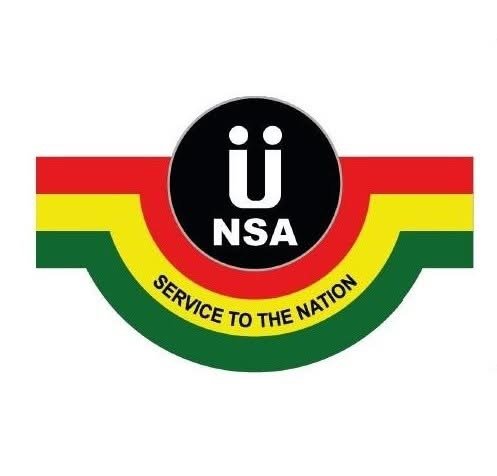The National Service Authority (NSA) has released PIN codes for 132,393 final-year students from 100 accredited educational institutions across Ghana, as part of the preparations for the 2025/2026 national service year.
In a statement issued on Tuesday, June 17, 2025, the NSA noted that this year’s data reflects significant improvement in data integrity due to increased transparency and stricter validation processes. These measures have helped eliminate inflated or fraudulent submissions.
The authority explained that the current number of valid submissions is on average 26 percent lower than figures recorded over the past three years, with a peak reduction of 36 percent compared to the 2022/2023 service year.
The NSA also disclosed that a total of 135,990 submissions were received from 122 tertiary institutions.
However, 3,597 submissions were excluded because they came from 22 unaccredited institutions not recognized by the Ghana Tertiary Education Commission (GTEC).
Graduates from these institutions will not be mobilized unless the NSA receives verified evidence of their schools’ accreditation.
The NSA urged these institutions to work with GTEC to regularize their accreditation status within the next 30 days to avoid disruptions to the deployment process for their graduates.
In addition to the PIN codes issued for graduates from accredited institutions, a further 908 PIN codes for private applicants—such as Ghanaians who studied abroad or those who deferred or defaulted in previous years—are currently awaiting final verification from their respective institutions.
Applicants in this category are advised to contact the NSA if their PIN codes are still inaccessible by June 24, 2025.
To activate their PIN codes, prospective national service personnel are required to pay a fee of GHS 40 at any ADB Bank branch or GHS 41 via MTN Mobile Money.
“The National Service Authority (NSA) has officially released PIN codes for 132,393 prospective national service personnel from 100 accredited educational institutions
nationwide, for the 2025/2026 service year. In comparison to previous years, the current figures reflect a significant improvement in data integrity, driven by enhanced transparency and stricter validation measures. This process has effectively eliminated any form of inflated or bogus submissions. As a result, this year’s figures are on average 26% lower than the numbers received over the past three years, with a peak reduction of 36% compared to the 2022/2023 session.”
Source: Ghana/Starrfm.com.gh/Hamdia Mohammed




